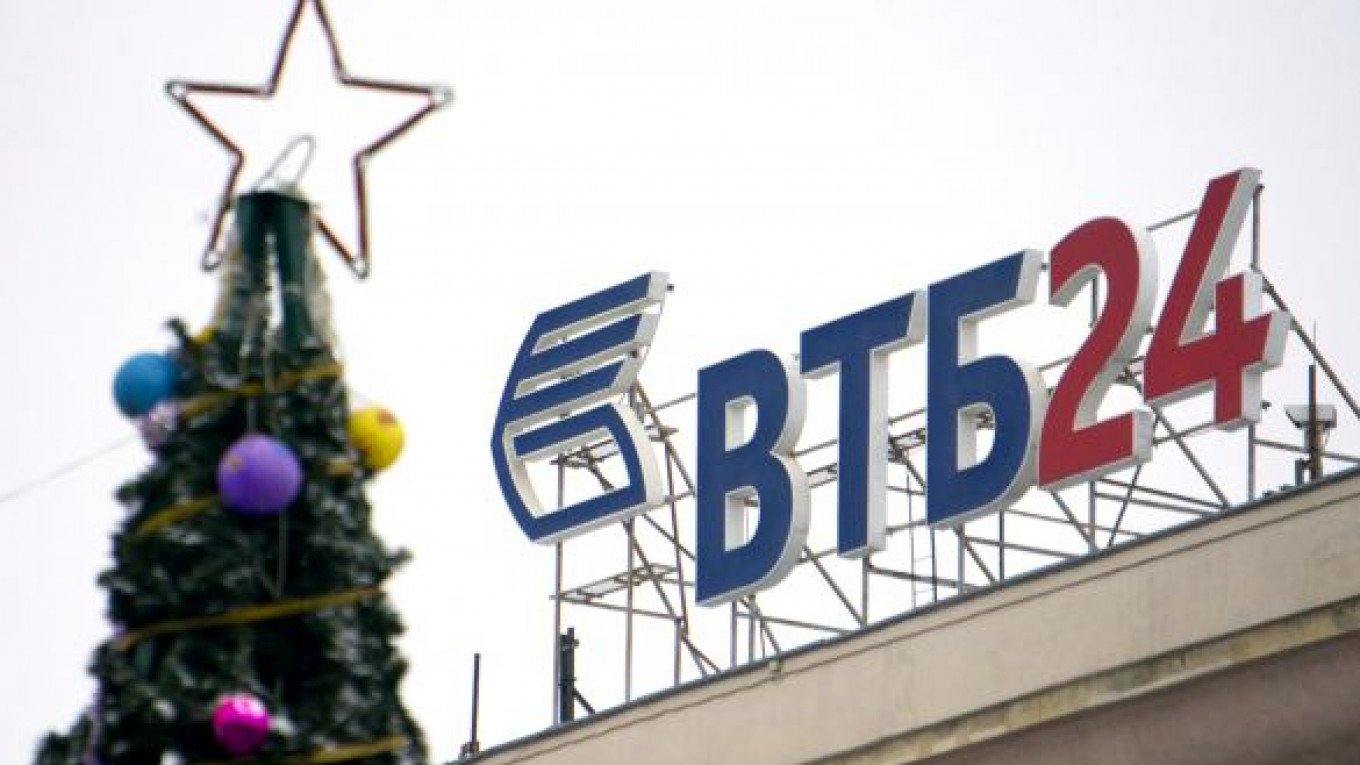President Vladimir Putin’s call for privatizations to be focused on the Moscow bourse may have the unwanted effect of draining demand from a planned $2 billion stock offering by banking group VTB.
Analysts warned on Monday that the Moscow stock exchange is too small to supply all the capital being sought by VTB and a series of state-owned companies, which could depress the price of the shares they aim to sell.
And a shortage of local demand could also undermine Putin’s desire to use the planned share offerings to boost Moscow’s status as a financial hub.
Seeking to transform Moscow into a global financial center rivaling New York, London and Hong Kong, Putin last week called for all state share sales to be held in Russia.
“If we don’t start doing this right now, we will never be able to. We will be just talking all the time about the need to do this,” Putin told senior officials Friday, according to a transcript published on the Kremlin’s website.
Analysts said the move would primarily affect VTB, which plans an issue of at least 10 percent of its shares this spring, raising at least $2 billion to bolster its capital base.
“A solely domestic placement could reduce demand for VTB’s [share issue], as foreign investors are more accustomed to depositary receipts and the volume … is large for the domestic market,” analyst Natalya Berezina at brokerage UralSib said in a note.
Putin, who began a new presidential term in May, did not name any specific companies whose share issues should be held in Moscow rather than overseas, but the government has flagged plans to cut its holdings in VTB, shipping firm Sovkomflot and diamond company Alrosa this year.
Recently, Russia merged its two stock exchanges into the united Moscow Exchange in a step to ease domestic share issues. The exchange plans an initial public offering on its own platform later this year.
But trading volumes in Moscow remain small by comparison with New York or London — the main listing platforms in recent years for Russian companies — as it has yet to create a competitive infrastructure and gain the trust of investors.
According to brokerage Otkritie, only 1.5 million people in Russia are direct or indirect stock market investors, compared with more than half of households in the United States.
“For this [boost to the Moscow bourse] to be achieved, a more stable, secure and transparent market environment needs to be promoted,” it said in a note.
Putin also suggested scrapping restrictions that prevent Russia’s State Pension Fund from investing in local IPOs, but this idea also met skepticism among analysts.
“If privatization evolves into various government bodies and quasi-government entities becoming the main buyers of privatized assets, the whole tenet of reducing the state’s role in the economy would be compromised, and equity risk premiums will likely remain elevated, rather than decrease,” Otkritie said.
In 2010, Russia announced plans to raise $50 billion in five years from reducing its stakes in major companies and banks such as Rosneft, Transneft, Sberbank, VTB and others.
Sales could be carried out to large private investors, including private equity firms, or via stock exchanges. So far, the state has cut its holdings via exchanges only in the country’s two largest banks, Sberbank and VTB, raising about $8 billion.
Related articles:
A Message from The Moscow Times:
Dear readers,
We are facing unprecedented challenges. Russia's Prosecutor General's Office has designated The Moscow Times as an "undesirable" organization, criminalizing our work and putting our staff at risk of prosecution. This follows our earlier unjust labeling as a "foreign agent."
These actions are direct attempts to silence independent journalism in Russia. The authorities claim our work "discredits the decisions of the Russian leadership." We see things differently: we strive to provide accurate, unbiased reporting on Russia.
We, the journalists of The Moscow Times, refuse to be silenced. But to continue our work, we need your help.
Your support, no matter how small, makes a world of difference. If you can, please support us monthly starting from just $2. It's quick to set up, and every contribution makes a significant impact.
By supporting The Moscow Times, you're defending open, independent journalism in the face of repression. Thank you for standing with us.
Remind me later.


